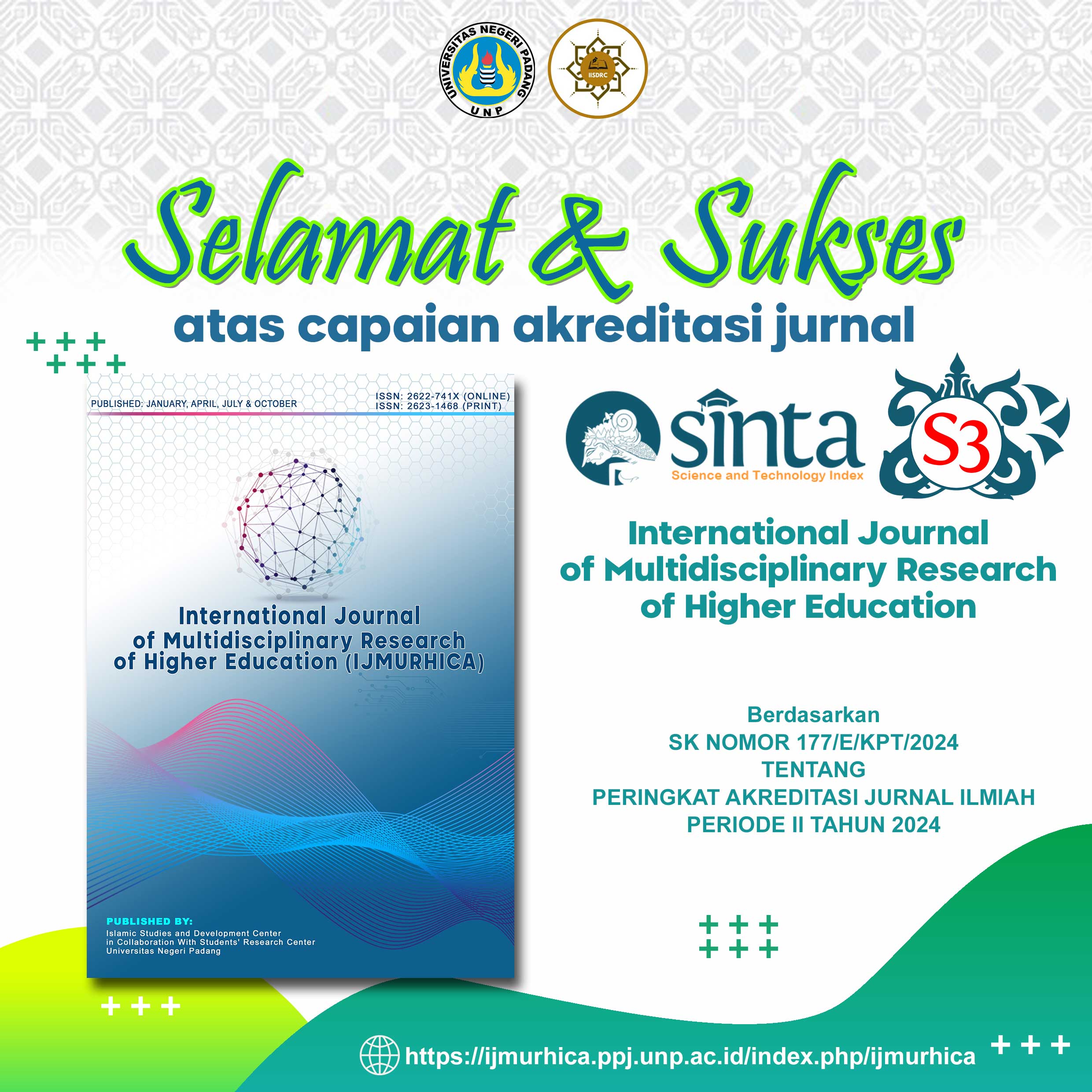Dakwah-Based Human Resource Management in the Binjai Muslim Youth Organization
DOI:
https://doi.org/10.24036/ijmurhica.v8i3.417Keywords:
Human resource management, da'wah, organization, Muslim Youth of BinjaiAbstract
This study aims to analyze the implementation of da'wah values in human resource management in da'wah organizations. This study focuses on da'wah-based human resource management in the Muslim Youth of Binjai (MY Binjai) organization, a da'wah institution that actively nurtures the younger generation in the city of Binjai, particularly in secondary schools and above. This research employs a descriptive qualitative method with informants consisting of the general chairman of Muslim Youth of Binjai, the head of the Student Development Department, and organizational mentors. Data collection techniques include observation, interviews, and documentation. All data are analyzed through three stages: data reduction, data presentation, and conclusion drawing. The research findings indicate that the Muslim Youth of Binjai manages human resources in a structured manner by integrating Islamic values at every stage, from planning to evaluation. Values such as consultation, trustworthiness, noble character, and sincerity form the foundation for cadre development. This management approach is not only focused on organizational goals but also fosters loyalty, discipline, and spiritual awareness among members. These findings offer benefits for the development of Islamic values-based da'wah management and serve as a reference for other da'wah organizations in designing a comprehensive human resource management system.
Downloads
Downloads
Published
How to Cite
Issue
Section
License
Copyright (c) 2025 Rama Noprialdi Ginting, Muhammad Fachran Haikal

This work is licensed under a Creative Commons Attribution-ShareAlike 4.0 International License.






